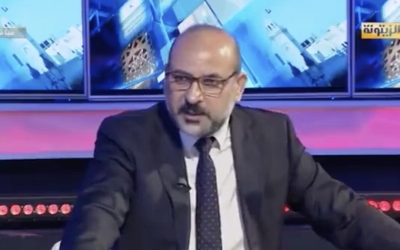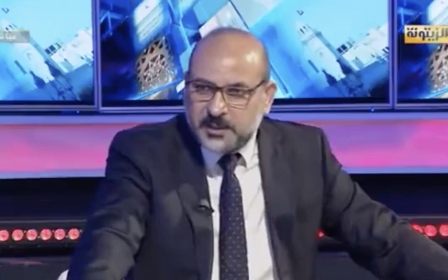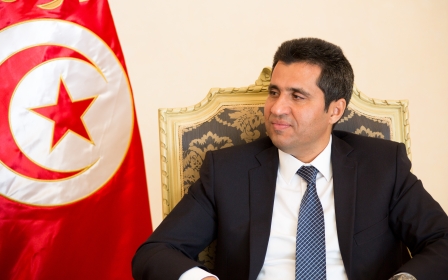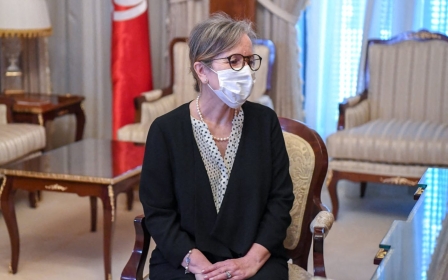Tunisia: Kais Saied claims 1.8 million people rallied for him. Media says low thousands
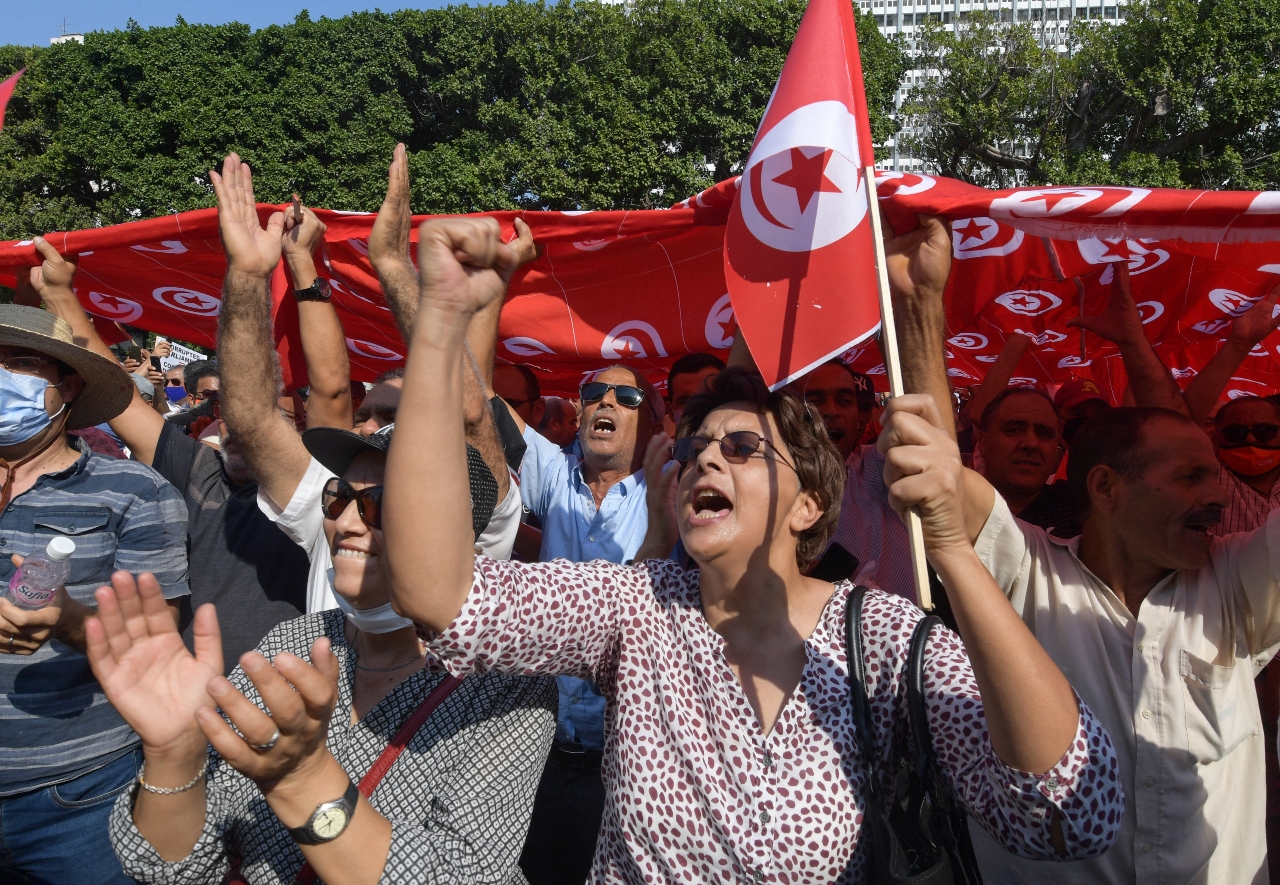
Tunisia's President Kais Saied has claimed that 1.8 million people rallied in support of him in the capital Tunis and other cities around the country on Sunday, while media reports put the figure between 5,000 and 10,000.
Footage showed Prime Minister Najla Bouden Romdhane replying, "Mashallah, Mashallah," when Saied announced the number of people who he claimed gathered at the weekend to back his July seizure of power.
However, Reuters put the number of people in the capital at 8,000, while AFP put the figure as low as 3,000.
Reuters said demonstrations of support had also taken place in Sfax, Sidi Bouzid, Gafsa and Monastir.
New MEE newsletter: Jerusalem Dispatch
Sign up to get the latest insights and analysis on Israel-Palestine, alongside Turkey Unpacked and other MEE newsletters
AFP put the total across the country at not much more than 5,000, with 1,000 gathering in Sfax, a similar number in Sousse, and smaller demonstrations elsewhere.
"We are all Kais Saied, we are all Tunisia," people chanted on Bourguiba Avenue, the main thoroughfare in central Tunis, also shouting that "the people want the dissolution of parliament".
Latest detentions
Saied's power grab has stirred controversy in the birthplace of the Arab Spring, with thousands gathering in protests last weekend to oppose his rule.
After months of political stalemate, on 25 July Saied sacked the prime minister, suspended parliament and granted himself judicial powers, a move he followed up in September with measures that effectively allowed him to rule by decree.
The parliamentary suspension lifted the immunity of MPs, and on Sunday, in the latest detention of a legislator, a deputy and a journalist were arrested for criticising Saied's moves, their lawyer Samir Ben Omar said.
Ben Omar said MP Abdellatif al-Alaoui and Zitouna TV presenter Amer Ayad had been arrested on charges of "plotting against state security".
In the programme, they both criticised the president's 29 September appointment of Bouden as Tunisia's first woman prime minister, with Ayad stating that she would function only as a "servant of the sultan".
Drift from democracy
Saied, elected in late 2019, has said his action seeks to save Tunisia from "imminent peril" during a painful socio-economic crisis aggravated by the Covid-19 pandemic.
However, civil society groups have denounced the move and warned of a drift away from democracy.
Tunisia has seen years of political deadlock since its 2011 revolution, with fractious coalitions and short-lived governments proving unable to resolve pressing social and economic crises.
Elections in 2019 produced another fragmented parliament, with Ennahda, which has been part of every parliamentary coalition since the revolution, the largest party in parliament.
A former law professor, Saied considers Tunisia's 2014 constitution to be unbalanced in favour of parliament.
He has never hidden his hostility to political parties, especially Ennahda.
Middle East Eye delivers independent and unrivalled coverage and analysis of the Middle East, North Africa and beyond. To learn more about republishing this content and the associated fees, please fill out this form. More about MEE can be found here.


